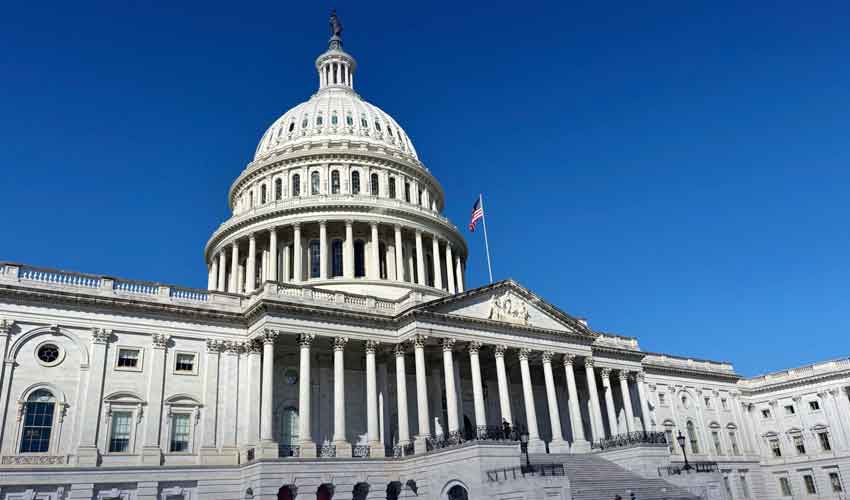Republicans have officially claimed the majority in the U.S. House of Representatives, completing their sweep of Congress after also gaining control of the Senate.
With 218 seats secured following a victory in Arizona, President-elect Donald Trump and his party now hold both legislative chambers, setting the stage for an aggressive push to implement their "America First" agenda once Trump takes office in January.
The GOP win in the House reinforces Trump's ability to pursue sweeping changes to the federal government, including plans for a large-scale deportation initiative, tax cuts, and expanded executive powers. Republican leaders, emboldened by this majority, envision a strong mandate, with House Speaker Mike Johnson signaling plans to overhaul government programs and regulations, even those popular among Democrats.
Johnson, who secured Trump’s endorsement to stay on as speaker, described a vision to reshape the federal government and implement an ambitious 100-day agenda alongside Trump. “Republicans in the House and Senate have a mandate,” Johnson said earlier this week. “The American people want us to implement and deliver that ‘America First’ agenda.”
Trump has already made strategic appointments, including nominating Rep. Matt Gaetz for attorney general, though the choice has stirred debate among Republican senators. Meanwhile, Rep. Jim Jordan, chair of the House Judiciary Committee, has signaled that Republicans intend to investigate past legal probes against Trump, including those led by Special Counsel Jack Smith.
Despite the victory, the GOP faces challenges in managing its narrow House majority. Gaetz's recent resignation, along with potential additional vacancies due to Trump’s administration picks, could complicate early legislative efforts. Republicans also need to manage factions within the party, as hardline conservatives are ascendant and looking to capitalize on Trump’s win.
Senate Republicans are also unifying under new leadership, with Sen. John Thune of South Dakota taking over as Senate Majority Leader following the retirement of Sen. Mitch McConnell. Thune, previously critical of Trump, pledged unity in advancing Trump’s agenda and securing Cabinet appointments.
Amid these shifts, Democrats, led by House Minority Leader Hakeem Jeffries, are strategizing to maintain relevance in the legislative process as they assess their election losses. However, with Republicans firmly in control of Congress, Democrats face an uphill battle in opposing Trump’s transformative agenda.
As the new Congress prepares to convene on January 3, Trump's influence over the GOP is expected to shape the future direction of the federal government, ushering in a period of dramatic policy shifts and heightened partisan tensions in Washington.


























